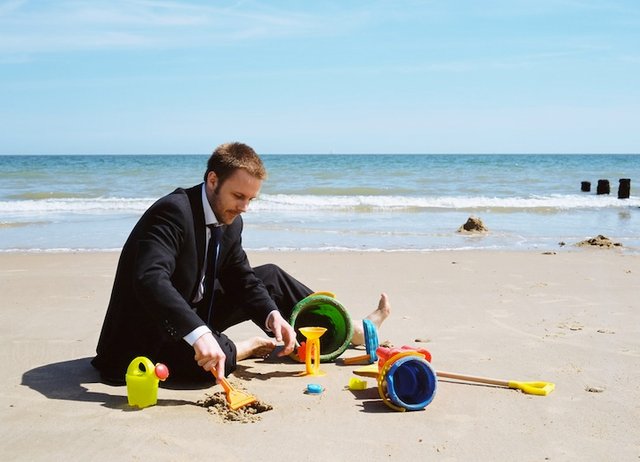Why Bregman's idea of a shorter workweek is an idealism

http://ideas.ted.com/how-working-less-could-solve-all-our-problems-really/
Recently, I came across an article in TED by Rutger Bregman that describes the advantages of working less.
"Shorter workweeks could help reduce accidents, combat climate change, make the genders more equal, and more"
The article argues for many seemingly valid points of why working less will help society as a whole. However, I do not really agree with it's viewpoint. Bregman's arguments for a shorter workweek are detached from practical implementations and neglect the crucial trade-offs that must be made for the benefits to come about.
It goes without saying that people would, in general, want to work fewer hours if they could maintain the same standards of living. Working fewer hours means less stress, more time to spend with family and more leisure. But what are the ways in which we could allow everyone to work fewer hours?

How do we make a workweek shorter?
There are two methods by which one's work hours can be reduced without compromising on the total economic output of a country. It is crucial to differentiate between the two ways as they have different benefits and drawbacks. Firstly, companies can maintain the same number of employees but increase a worker's productivity by implementing an objective-based wage rather than a time-based wage. Secondly, companies can reduce the number of hours each worker works, but hire a larger number of workers. In reality, a combination of the two methods can be used, but I shall occasionally analyze them individually for clarity. Henceforth, I shall refer to the first method as increasing individual productivity and the second method as work sharing. As a side note, it is possible to simply reduce work hours by force without increasing individual productivity or sharing work to compensate. However, this is unfavorable as it results in reduced national economic output and reduced standards of living. Nonetheless, the arguments I provide below do still apply if this unlikely path was taken instead.
Reducing unemployment is just pushing the problem away
One of the benefits argued by Bregman is that "working less could reduce unemployment". We must first note that this claimed effect only happens if we implement work sharing rather than increasing individual productivity, since the latter would not result in more job positions for the unemployed. The idea argued by Bregman is based on the premise that since work sharing results in more employed people, unemployment rates will drop. I do agree that unemployment rates will drop, but do not believe that this will have a significant net social impact. Work sharing neither increases total wages paid nor the mean hourly wage earned by society as a whole. Rather, it redistributes work artificially, placing a cap on what an individual can earn on a job. Many blue-collared workers work to provide for their family, sustain basic necessities or improve their standards of living. From my previous working experience in the hospitality industry, I have noticed that many of my colleagues come from socioeconomic backgrounds whereby they need to work about 50 hours/week to live comfortably. If work hours are forcefully reduced and shared with others, these employees would likely end up having to find another part time job in order to support their needs. The problem of unemployment is not solved but rather morphed into a different form that does not solve social inequality or poverty. Furthermore, the displacement of workers of lower economic class results in greater inconveniences, as well as an indirect form of frictional unemployment. Thus, working less implemented through either method does not reduce unemployment, and may in fact result in disruptions.
Reducing accident rates?
Proponents of a shorter workweek may claim that extreme working hours result in higher accident rates. Bregman mentions a few examples such as the Chernobyl accident and the Space Shuttle Challenger failure. Indeed, managers with as little as two hours of sleep played a part in not being able to prevent these events. I do believe that long working hours are detrimental in this aspect, but only in scenarios where working hours become extreme whereby workers are unable to get proper rest. If the typical employees' workday is less than 10 hours long on a regular schedule, this purported drawback is mostly insignificant.

Environmental effects are overstated
Furthermore, I believe that the detrimental environmental effects of shortening the workweek are commonly overstated. Bregman claims ambitiously that "a shorter workweek could cut the CO2 emitted this century by half", citing an article from the Center For Economic And Policy Research (CEPR). I believe Bregman has either misinterpreted the article from CEPR or has taken a very optimistic case. From the CEPR article, reducing the workweek by 0.5% per year for the current century would mitigate 25% to 50% of the emissions contributing to climate change that has not been locked-in. In terms of CO2 emissions, the base case will only result in 15% reduction in CO2 emissions. This is intuitively more reasonable than what Bregman claims, since reducing the workweek by 0.5% per year corresponds to working 20% fewer hours on average, which could not possibly cut CO2 emissions by 50%. While a 15% reduction in CO2 emissions is non-negligible, I do not believe that it is a significant argument for cutting the workweek. It is easier and more economically viable to research and invest in renewable energy and more efficient transport, which contribute to around 56% of greenhouse gas emissions.
All in all...
While implementing a shorter workweek can result in less stress or more personal time, it is in practice difficult to accomplish this without increasing wages or sacrificing national output. When we try to shorten the workweek without sacrificing economic output, by either increasing individual productivity or work sharing, we find that many of the benefits are either mitigated or not very significant. The dream of a shorter workweek is one that in practical implementation becomes non-beneficial.
Rutger Bregman (2017), "How Working less could Solve all our Problems. Really." Retrieved July 14, 2017, from http://ideas.ted.com/how-working-less-could-solve-all-our-problems-really/
EPA U.S. Greenhouse Gas Inventory Report: 1990-2014. (2017, February 23). Retrieved July 14, 2017, from https://www.epa.gov/ghgemissions/us-greenhouse-gas-inventory-report-1990-2014
Rosnick, D. (2013). Reduced work hours as a means of slowing climate change. real-world economics review, 63(25), 124-133.
If you like this article then click here to read more about the subject.
(Keywords: unemployment, bregmans, idealism, workweek, working, sharing, bregman, workers, shorter, result, hours, work, idea)
The future of work is a really exciting topic! i believe the more options people have around how they structure their work life, the better everyone will be. Is this a topic you will be covering? What do you plan on writing about? I'm quite new as well
I will be focusing more on Science and Mathematics, but I wrote about this topic as I found it quite interesting